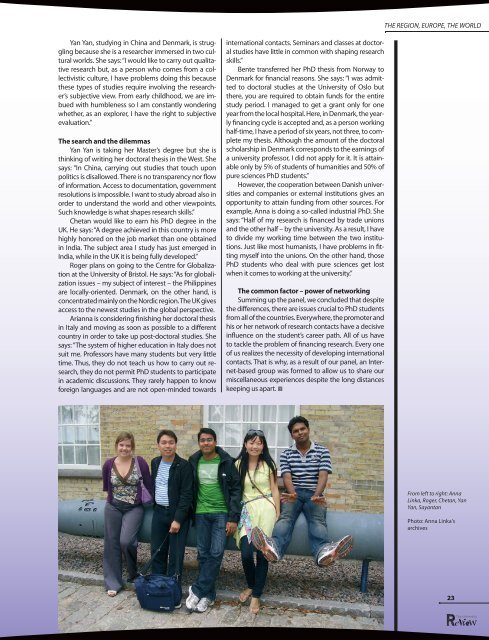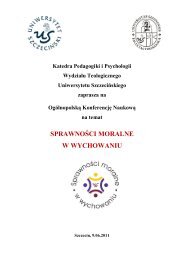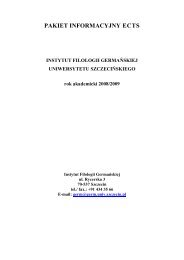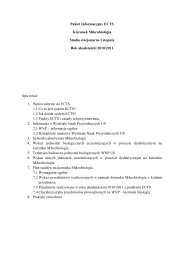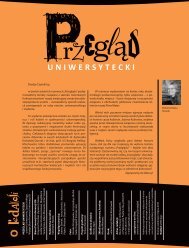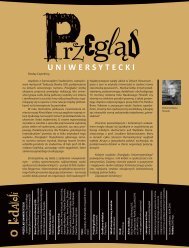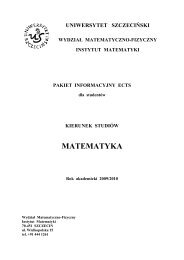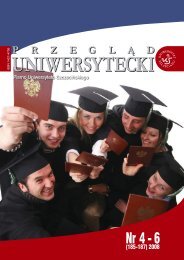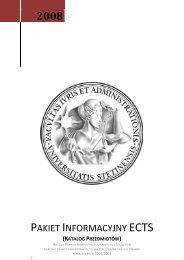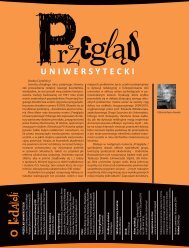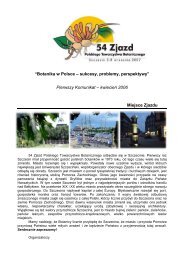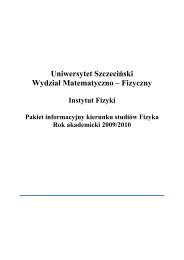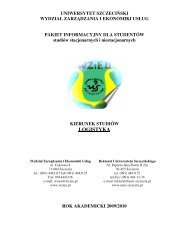The University
The University
The University
Create successful ePaper yourself
Turn your PDF publications into a flip-book with our unique Google optimized e-Paper software.
THE REGION, EUROPE, THE WORLD<br />
yan yan, studying in China and Denmark, is struggling<br />
because she is a researcher immersed in two cultural<br />
worlds. She says: “i would like to carry out qualitative<br />
research but, as a person who comes from a collectivistic<br />
culture, i have problems doing this because<br />
these types of studies require involving the researcher’s<br />
subjective view. From early childhood, we are imbued<br />
with humbleness so i am constantly wondering<br />
whether, as an explorer, i have the right to subjective<br />
evaluation.”<br />
<strong>The</strong> search and the dilemmas<br />
yan yan is taking her Master’s degree but she is<br />
thinking of writing her doctoral thesis in the West. She<br />
says: “in China, carrying out studies that touch upon<br />
politics is disallowed. <strong>The</strong>re is no transparency nor flow<br />
of information. Access to documentation, government<br />
resolutions is impossible. i want to study abroad also in<br />
order to understand the world and other viewpoints.<br />
Such knowledge is what shapes research skills.”<br />
Chetan would like to earn his PhD degree in the<br />
UK. he says: “A degree achieved in this country is more<br />
highly honored on the job market than one obtained<br />
in india. <strong>The</strong> subject area i study has just emerged in<br />
india, while in the UK it is being fully developed.”<br />
Roger plans on going to the Centre for Globalization<br />
at the <strong>University</strong> of Bristol. he says: “As for globalization<br />
issues – my subject of interest – the Philippines<br />
are locally-oriented. Denmark, on the other hand, is<br />
concentrated mainly on the Nordic region. <strong>The</strong> UK gives<br />
access to the newest studies in the global perspective.<br />
Arianna is considering finishing her doctoral thesis<br />
in italy and moving as soon as possible to a different<br />
country in order to take up post-doctoral studies. She<br />
says: “<strong>The</strong> system of higher education in italy does not<br />
suit me. Professors have many students but very little<br />
time. Thus, they do not teach us how to carry out research,<br />
they do not permit PhD students to participate<br />
in academic discussions. <strong>The</strong>y rarely happen to know<br />
foreign languages and are not open-minded towards<br />
international contacts. Seminars and classes at doctoral<br />
studies have little in common with shaping research<br />
skills.”<br />
Bente transferred her PhD thesis from Norway to<br />
Denmark for financial reasons. She says: “i was admitted<br />
to doctoral studies at the <strong>University</strong> of Oslo but<br />
there, you are required to obtain funds for the entire<br />
study period. i managed to get a grant only for one<br />
year from the local hospital. here, in Denmark, the yearly<br />
financing cycle is accepted and, as a person working<br />
half-time, i have a period of six years, not three, to complete<br />
my thesis. Although the amount of the doctoral<br />
scholarship in Denmark corresponds to the earnings of<br />
a university professor, i did not apply for it. it is attainable<br />
only by 5% of students of humanities and 50% of<br />
pure sciences PhD students.”<br />
however, the cooperation between Danish universities<br />
and companies or external institutions gives an<br />
opportunity to attain funding from other sources. For<br />
example, Anna is doing a so-called industrial PhD. She<br />
says: “half of my research is financed by trade unions<br />
and the other half – by the university. As a result, i have<br />
to divide my working time between the two institutions.<br />
Just like most humanists, i have problems in fitting<br />
myself into the unions. On the other hand, those<br />
PhD students who deal with pure sciences get lost<br />
when it comes to working at the university.”<br />
<strong>The</strong> common factor – power of networking<br />
Summing up the panel, we concluded that despite<br />
the differences, there are issues crucial to PhD students<br />
from all of the countries. Everywhere, the promoter and<br />
his or her network of research contacts have a decisive<br />
influence on the student’s career path. All of us have<br />
to tackle the problem of financing research. Every one<br />
of us realizes the necessity of developing international<br />
contacts. That is why, as a result of our panel, an internet-based<br />
group was formed to allow us to share our<br />
miscellaneous experiences despite the long distances<br />
keeping us apart. <br />
From left to right: Anna<br />
Linka, Roger, Chetan, Yan<br />
Yan, Sayantan<br />
Photo: Anna Linka’s<br />
archives<br />
23


